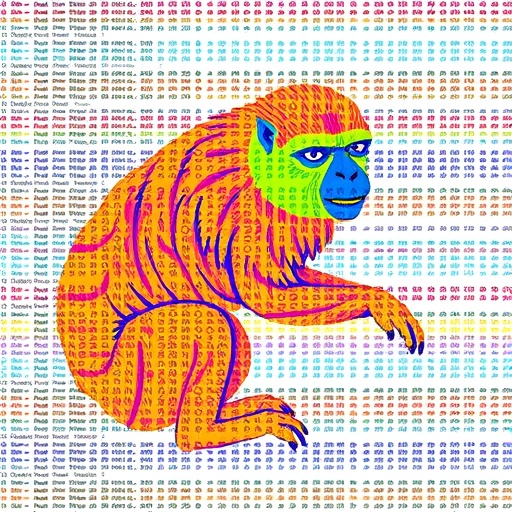In a groundbreaking study poised to shift the paradigm of genetic analysis, researchers have unveiled a sophisticated model aimed at variably analyzing the genomes of non-human primates. This study, led by a team consisting of Choi, Zhou, and Song, represents an intersection of cutting-edge technology and biological research, significantly enhancing our understanding of genetic variations in these closely related species. The focus on non-human primates is not merely academic; it provides vital insights into evolutionary biology, comparative genomics, and the genetic foundations of health and disease.
The importance of non-human primate genomes in understanding human genetics cannot be overstated. These species share considerable genetic similarity with humans, making them invaluable for studying the complexities of genomic variations. The conventional methods employed for variant analysis have often been cumbersome and limited in scope. However, the refinement model proposed by Choi and colleagues promises a more precise, automated approach that could transform how researchers analyze genomic data.
Central to this model is its ability to leverage machine learning techniques to enhance the accuracy of variant calling in genomic sequences. Machine learning has revolutionized numerous fields, and its application in genomics marks a powerful step in computational biology. By training their model on extensive datasets of primate genomes, the researchers have been able to identify subtle variations that were previously overlooked by traditional methods. This is particularly crucial for understanding complexities arising from structural variants and single nucleotide polymorphisms (SNPs) that can significantly influence phenotypic expressions.
The methodology used in this research is noteworthy. The model employs a series of algorithms to sift through vast genomic datasets, classifying variants based on their potential biological impacts and evolutionary significance. This twofold approach not only improves the identification of variants but also contextualizes their relevance within a broader biological framework. By implementing this refinement model, researchers can prioritize which variants warrant further investigation, thereby streamlining the research workflow.
Moreover, the study illustrates how this model has significant implications for evolutionary studies. By analyzing genetic variations across different non-human primate species, researchers can gain insights into evolutionary processes that have taken place over millions of years. This can lead to a deeper understanding of the genetic underpinnings of traits that are shared among these species, as well as traits that are unique to each branch of the primate lineage. Such insights hold promise for illuminating the pathways of human evolution.
Another facet of this refinement model is its potential application in medical research. Many human diseases are linked to genetic variations that may be present in non-human primate genomes. The ability to accurately characterize these variants allows researchers to explore potential models for human diseases, as well as develop therapeutic strategies based on this comparative genomics approach. For instance, identifying disease susceptibility genes in primates can lead to better predictive models and treatments for similar conditions in humans.
One of the standout features of the research is its adaptability. The model can be applied to various primate genomes, from cercopithecoids (Old World monkeys) to hominoids (apes), demonstrating versatility in its underlying algorithms. This adaptability also extends to the inclusion of diverse populations within these species, thereby accentuating its relevance in understanding not only the standard genetic makeup but also the implications of genetic diversity.
As this research makes its way through peer review and eventually into the broader scientific community, the implications of the findings are immense. The refinement model could establish a new standard for genomic variant analysis, incrementally shifting the methodologies with which researchers have approached the study of genomes. Furthermore, it could streamline future research endeavors, saving time and resources while producing more significant and reliable results.
In the context of advancements in genomics, this study reminds us of the relentless march toward understanding the human genome’s intricacies. As we unlock the codes of our closest genetic relatives, we stand on the brink of discoveries that could redefine our understanding of health, evolution, and what it means to be human in the grand tapestry of life.
The potential trajectories derived from this refinement model extend into various scientific domains. From conservation biology, where understanding genetic diversity can aid in species preservation efforts, to agricultural sciences that seek to enhance crop resilience through insights gained from primate genomics—this research holds the promise of a multitude of applications.
Furthermore, the deployment of such models underscores the increasing synergy between biology and computational sciences. As computational capabilities expand, the intersection between these fields continues to deepen, ushering in an era where complex biological questions can be addressed with unprecedented precision. The tools of the digital age, when married with biological inquiry, have the power to transform not just individual fields but the entirety of scientific investigation.
In conclusion, the work of Choi, Zhou, and Song marks a pivotal moment in the analysis of primate genomes. Their innovative refinement model stands to reshape the landscape of genetic variant analysis, paving the way for future research that could elucidate our understanding of both primate and human biology. As this research garners attention, it serves as a reminder of the endless possibilities that lie at the frontier of genetic exploration.
With the potential to unlock a treasure trove of biological insights, this study exemplifies the shift towards a more informed, data-driven future in genetic research. As we continue to explore the complexities of genomes, the implications of these findings will resonate throughout the fields of genomics, evolutionary biology, and medicine for years to come.
Subject of Research: Variant analysis in non-human primate genomes
Article Title: Learning a refinement model for variant analysis in non-human primate genomes
Article References:
Choi, J., Zhou, B. & Song, G. Learning a refinement model for variant analysis in non-human primate genomes.
BMC Genomics 26, 775 (2025). https://doi.org/10.1186/s12864-025-11921-2
Image Credits: AI Generated
DOI: 10.1186/s12864-025-11921-2
Keywords: genomic variant analysis, non-human primates, machine learning, evolutionary biology, genetic diversity, comparative genomics




